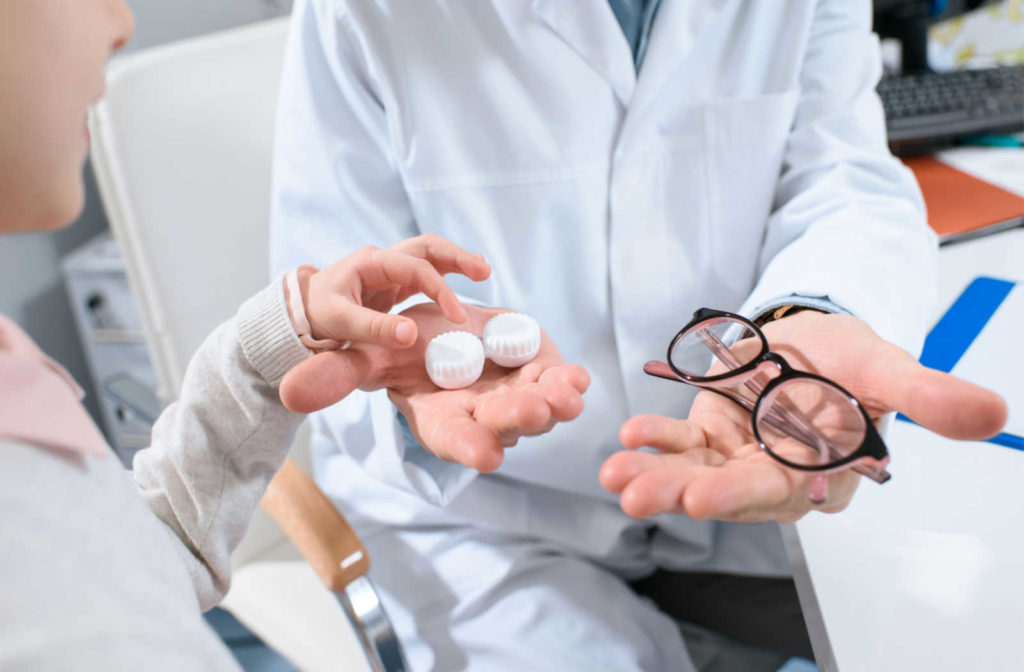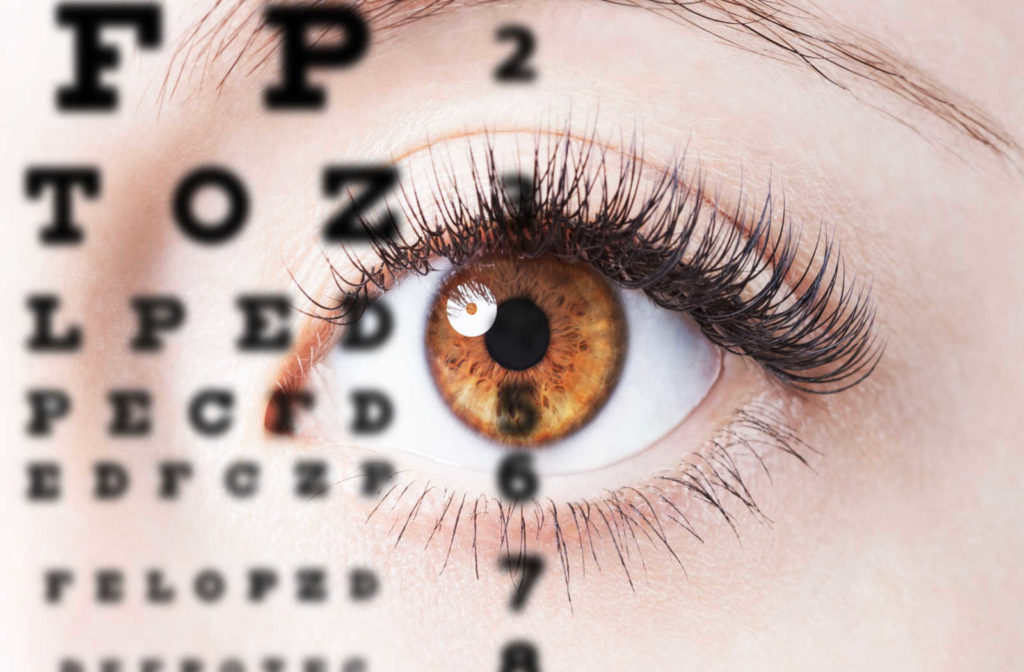Eye exams are a series of tests that allow your optometrist to determine your eye health and if you have any eye issues. Eye exams focus on aspects of your vision, like a retinal exam, eye muscle movement, pupil reaction, and refraction testing.
Whether you are going to your optometrist’s office for a particular eye concern or for a scheduled eye exam, there are some things you can do before to help your eye doctor accurately assess your eye health and vision.
Here are 6 things you can do to better prepare for your next eye exam:
#1: Check Your Insurance Coverage
There are different types of coverage, including medical and vision insurance. It’s always good to know before your exam what kind of coverage you have.
Call ahead to find out what costs your insurance covers under your plan. If you are uncertain about your coverage and have questions, contact your optometrist’s office to see who their insurance providers are.
#2: Know Your Symptoms and Medications
Your eye doctor will most likely ask eye-related questions to learn as much as possible about your eyes. Taking note of symptoms and bringing a list to your eye exam will allow your eye doctor to tailor the exam accordingly.
Symptoms to notice can include:
- Eye pain and discomfort
- Blurry vision
- Light sensitivity
- Dry eyes
- Inability to focus on close-up objects
A list of medications and supplements you take, prescription and over-the-counter, including dosages, alerts your eye doctor about any conditions and overall health. It also helps if they need to prescribe medication and consider side effects.
#3: Know Your Family History
Your family history is important because many eye conditions are genetic. Some of the things you should bring up are family histories of cataracts, glaucoma, color blindness, or macular degeneration. Information about past eye conditions or surgeries is also helpful and can alter the suggestions or treatment plans your eye doctor makes.

#4: Don’t Forget Your Current Prescription
Don’t forget your current prescription glasses or contact lenses for your eye exam. These give your eye doctor an accurate picture of your vision and if anything has changed. It’s also the ideal time to let them know if you are happy with your prescription eyewear or need a change.
If you have a new eye doctor, have your old doctor send over your file. Your eye history and previous eye exam results can provide information about your eye and vision health.
#5: Prepare for a Diabetic Eye Exam
During some appointments, it may be necessary to dilate your eyes, such as for a dilated eye exam if you have diabetes or high blood sugar. Special eye drops for dilating the eye result in blurry vision for several hours after the exam.
You will need to arrange for someone to drive you home. Dilated pupils allow more light to enter the eye causing light sensitivity. Bringing a pair of sunglasses can provide protection and comfort until the effect of the drops wears off.
#6: Have a List of Questions or Concerns
To make sure your exam is as seamless as possible, ask questions in advance so that you can prepare yourself for any tests ahead of time. Talking to your eye doctor about any eye concerns helps you feel confident about your eye health. It’s common for prescriptions to change over time, especially as we age.
Questions can include:
- How can I improve my eyesight or eye care?
- What are some signs and symptoms of vision changes?
- How often should I have an eye exam?
- Am I at risk of developing eye disease?
- What are my treatment options?
Schedule Your Next Eye Exam
Eye exams are vital for the early detection and treatment of eye diseases. They also include patients’ history and information unrelated to vision better assess and care for your eye health.
In order to get the best possible results from your eye exam, preparing a list of symptoms and medications, bringing your current prescription, and being proactive by asking questions, are some things to consider.
Preserving your vision and protecting against eye disease starts with regular eye exams. Our knowledgeable team is always ready to answer questions and concerns on eye exams and health. Call Dr. Henslick Vision Center today or request an appointment.




